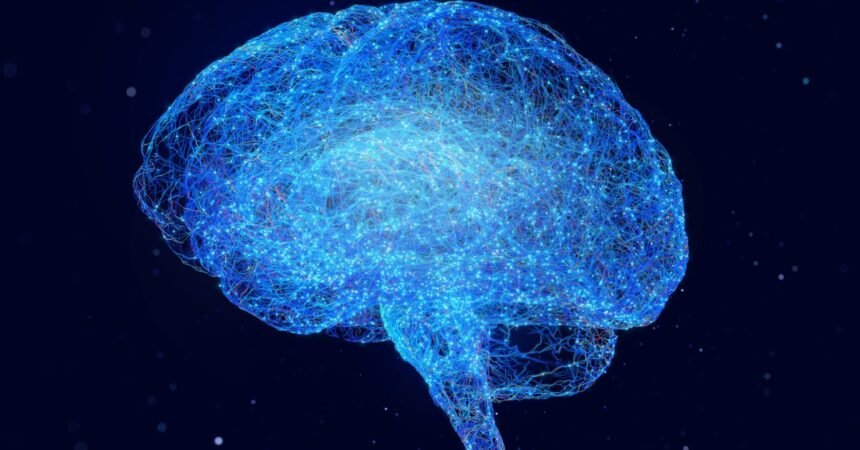It’s an automatic behavior when you meet someone new: subconsciously, you take stock of physical cues to gauge how old they are. Facial wrinkles, gray hairs, an unsteady walk: these all signal older age.
Often, these guesses are pretty accurate, and researchers are attempting to replicate that internal age calculator to figure out how old people are—not chronologically, but biologically.
In a new paper published in Nature Medicine, Tony Wyss-Coray, professor of neurology at Stanford University and director of the Phil and Penny Knight Initiative for Brain Resilience, and his colleagues report on a blood test they developed that can determine a person’s “biological age:” a number based on your internal health that may be able to more accurately capture how well you’re aging than your birthday age.
The test looks for sets of proteins unique to 11 organ systems, and each of these groups of proteins provides a window into how healthy the corresponding organ is. Taken together, they can help predict which people are likely to develop certain diseases over the next decade or so.
Based on the analysis, the brain appears to be a particularly strong predictor of not just Alzheimer’s disease, but longevity overall. Researchers found that people with brains that were older than their chronological age tended to die sooner than those with brains that were younger than their actual age.
Building a biological clock
Scientists have long been interested in studying the gap between a person’s chronological age and their biological age, since the difference reflects how quickly someone might be aging—a process influenced by factors like disease, environmental exposures, smoking, diet, and other lifestyle factors. Various calculations like the one used in the current study—so-called “biological clocks”—exist to determine a person’s biological age, but proving their reliability and accuracy has been challenging.
To generate a stronger scientific basis for a biological clock, Wyss-Coray began with the fact that organs in the body tend to produce specific proteins that are unique to them. His hypothesis was that tracking how these proteins change over time could indicate how healthy the organ is and how well it’s functioning. That’s what blood tests do at your annual physical: they provide a glimpse into the status of the heart, liver and other organs so doctors have a sense of how well they are working and if they’re changing over time.
Read More: How Well Will You Age? Check Your Grip Strength
Wyss-Coray took that idea to the next level by studying 3,000 proteins in 45,000 people, ages 40 to 70 who provided blood samples to the UK Biobank. These proteins were identified as being unique to one of 11 different organs: fat tissue, artery, brain, heart, immune tissue, intestine, kidney, liver, lung, muscle, and pancreas. He also developed a machine-learning model that recorded levels of these proteins in both healthy people and those with disease. Because the samples were linked to people’s ages, Wyss-Coray could also map out what levels of proteins were associated with what ages.
When he did that, he came up with the biological age of any given organ in any given person, which he could then compare to their chronological age to get a sense for which people were aging more quickly. The 20 proteins associated with the brain turned out to be good proxies for calculating a person’s overall biological age.
“If I have a measurement [of the brain proteins] from any random person, I can try to fit it in and say, ‘This person must be around this old,’” he says. “It gives an estimate of how old that person is, or how old that brain is.”
A new glimpse into aging
Wyss-Coray isn’t sure why the brain is such a strong stand-in for the rest of the organ systems, but it’s possible that either the brain somehow reflects the overall disease or damage state of the body and other organ systems, or that the brain is a central orchestrator of different organs and oversees their function and longevity.
Because the study followed the people who provided samples for 15 to 17 years, Wyss-Coray could also examine how biological age correlated with death. Those whose biological brain age was younger than their chronological age had a 40% lower risk of dying during the study compared to normal agers. People with older brains were not only more likely to have shorter lives but also three times more likely to develop Alzheimer’s disease—a level similar to having one copy of the genetic risk factor ApoE4—than normal agers.
Read More: How a New Weight-Loss Pill Could Transform Health
The “older” a person’s organs, the higher their risk of death; having two to four aged organs increased the risk of dying during the study by more than two-fold, and having eight or more aged organs increased the risk eight-fold. “There is a stepwise increase in the risk of dying,” says Wyss-Coray. “That’s pretty striking.”
While sobering, the results are also hopeful, he says. Unlike genes, proteins are modifiable, and the health of organs can be changed with medications, lifestyle behaviors, or both. People in the study who took one of six medications or supplements—cod liver oil, glucosamine, ibuprofen, multivitamins, the hormone treatment Premarin, or vitamin C—tended to have at least two organs systems that were biologically younger than their chronological age. People who didn’t smoke or drink excessively and who regularly slept well also tended to have younger organs.
“In the future—and, to a certain extent, even now—hopefully there are some ways to intervene,” Wyss-Coray says. “It’s similar to bringing your car to the garage once a year, when they use a computer diagnostic to show if all the different parts of your car are okay. What is nice here is that this potentially gives people something in their hands that they can change.”







